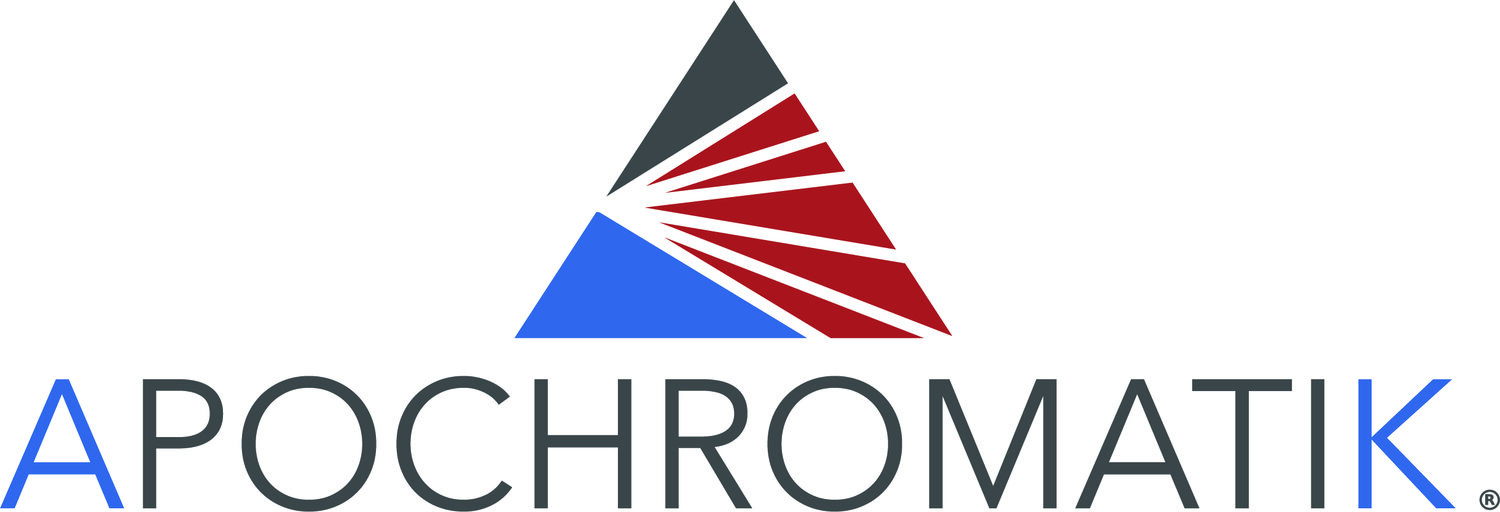7 Productivity Strategies During Challenging Times
It can be difficult to be productive right now, so we wanted to suggest seven strategies if you’re struggling.
1. If you’re mindlessly scrolling or binge watching, replace some of that time with videos or articles that can help your professional development.
Ted Talks, Harvard Business Review articles, or articles or videos from your favorite professional association website can help you learn, grow, and stay connected to your brain and your profession. If that’s too much work, you don’t even have to leave this site. Recent ApochroMinute videos have addressed why you need a quit list, goal achievement during this challenge, and tips for video meetings. Each takes just 60 seconds, and will have you feeling more productive and focused than another cat video.
We’ve also each been on a number of podcasts and Facebook Lives recently discussing working from home, Covid-19-proofing your career, and executive presence in times of crisis. You can find those on the Covid-19 resource page on the Apochromatik blog, along with career development and transition articles relevant far beyond the current situation.
2. Pick one professional skill to develop during this time.
If you are fortunate enough to find yourself with extra time right now, it can be tempting to fall into the trap of trying to adopt several new habits, add new skills, etc. Rather than not getting very far with anything and giving up on everything out of frustration, pick one professional skill you want to develop during this time, and one personal skill. Having a narrower focus will make you more likely to succeed, and less likely to get overwhelmed. Stumped on where to start? Take our free, exclusive online Executive Presence Quiz. You’ll find out how your executive presence ranks, and get practical tips to improve.
3. Experiment.
Reassess the workstation you hurriedly set up a few weeks ago, or that was good enough for occasional work from home but isn’t adequate for all day, every day. Consider whether your schedule is set up for success – maybe standing meetings scattered throughout the week can be reorganized to give you bigger blocks of focused work time. Experiment to see whether small changes can increase your productivity.
4. Get support.
There are lots of ways to get support — you can join #cocktailsduringcovid Monday and Thursday nights at 5 pm central, start an accountability group, or reach out to friends and family.
We’re also glad to do a complimentary 30 minute strategy call in April with anyone on our email list, and are offering one free additional 60 minute session to all of our clients. These calls do need to be booked in April, so please reach out today to schedule.
5. Do a productivity sprint.
Did your elementary school teacher ever set a timer and have the class race to pick up the classroom before the timer went off? The same idea works with adults (and older kids). Set a timer and commit to doing as much as you can on one project — and nothing else — for 15 or 30 minutes. It will either kick-start your progress and you’ll be motivated to keep going, or you’ll be relieved when the timer goes off and stop immediately. Either way, you’ll have gotten more done than you would have otherwise.
For a more advanced version of a sprint, Future in Focus Mastermind members can join us for our GSD (Get Stuff Done) days. In a compressed period of time, participants last weekend reporting getting “100% more” done than they would have otherwise. If you’re one of our one-on-one coaching clients, contact your primary coach about an upcoming GSD day for coaching clients.
6. Reflect on your priorities.
You might not feel motivated because the things on your list might not matter right now. It might feel more relevant to google “how to make Chlorox wipes at home” than to work on a new employee review program, or a new marketing plan. Our post on how to eliminate, automate, delegate, trade, time, and calendar can help you figure out what really needs to be done — and how to get it off your list without doing it yourself. Consider also whether volunteering or otherwise supporting a non-profit might be more useful and meaningful that whatever is on your list. My godchildren have been drawing pictures and writing letters to people in nursing homes right now. Probably not on the to do list, but infinitely more meaningful than decluttering their toys. Whether sewing masks, donating all those travel shampoos and soaps to a homeless shelter, or FaceTiming with elderly relatives, spending time helping others can be a better use of your time than most of what’s on your list.
7. Give yourself grace.
It’s unreasonable to expect that you will be up to your normal productivity in a new and challenging time. Cut yourself some slack. Celebrate the days when you are motivated and productive, and recognize that you are not a robot. Staying in touch with other people who are willing to be honest about how they’re feeling and doing can also help. (One way to do that is to join us Monday and Thursday nights at #cocktailsduringcovid for networking, strategizing, problem solving, and coaching.)
Amy M. Gardner is a certified professional coach with Apochromatik specializing in career development and career transition coaching. Amy is a former Big Law associate, partner at a mid-size law firm, and dean of students at a top 5 law school. Today she works with lawyers and other high-achieving professionals to build the career and life they want. Contact Amy directly at amy@apochromatik.com.

